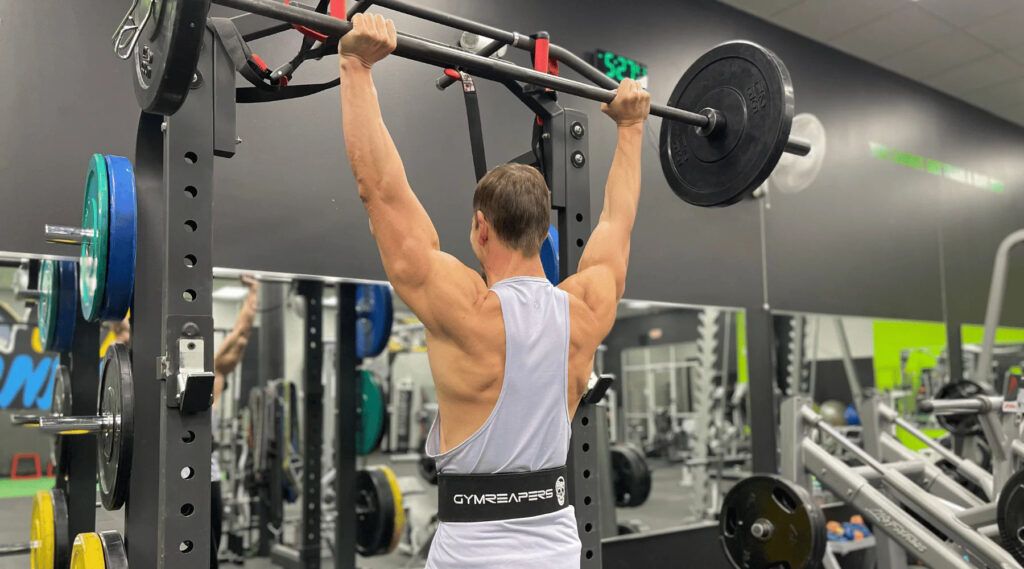
Overhead exercises like presses, snatches, and handstands are popular but they can be a real pain for your shoulders. Here’s why.
INTRODUCTION-
Shoulder pain during overhead exercises is one of the most common complaints among gym-goers, CrossFit athletes, and even yogis. Whether you’re pressing, snatching, or holding a handstand, the overhead position demands a lot from your shoulder joint—and without the right mechanics, things can go wrong quickly. In this article, we’ll break down why overhead movements can cause pain, what’s happening under the surface, and how you can fix it with simple, effective physio strategies.
1. The Shoulder Joint Is Naturally Unstable
The shoulder has the widest range of motion in the body but that mobility comes at the cost of stability. It’s like a golf ball sitting on a tee, there’s a lot of room for error. Overhead movement pushes this joint to its limit.
2. Poor Scapular Control Is a Major Culprit
This leads to overload and strain during overhead tasks.Your shoulder blade (scapula) acts as the base for your arm movements. If it’s not rotating or stabilising properly, your shoulder struggles. Weak Serratus Anterior or lower traps often cause poor control.
3. Tightness in the Thoracic Spine or Lats
A stiff upper back (thoracic spine) reduces your ability to lift overhead with good alignment. Tight lats (the muscles running from your lower back to your arms) pull your arms down and forward. This causes compensations like flaring ribs or arching the back, straining the shoulder joint.
4. Rotator Cuff Weakness or Imbalance
The rotator cuff muscles keep the shoulder joint centred during movement. Weakness or imbalance here leads to poor mechanics under load. This often shows up as pain during or after overhead workouts.
5. Overuse Without Adequate Recovery
Repeating overhead movements frequently, especially in CrossFit or gym classes can cause cumulative stress. Micro tears in tendons (like the supraspinatus) can build up over time. Without rest and proper care, this can turn into tendinopathy or impingement.
6. Shoulder Impingement: The Pinch Is Real
When the space between your acromion (shoulder blade) and rotator cuff narrows, soft tissues get compressed. This “impingement” creates pain during overhead motion. It’s commonly aggravated by poor posture and mechanics.
7. Common Conditions Triggered by Overhead Workouts
Rotator cuff tendinopathy– pain at the top or side of the shoulder.
Subacromial bursitis– sharp catching pain with overhead reach.
Shoulder instability– often feels like a slipping or popping sensation.
Labral tears– dull ache deep inside the joint, often with clicking.
What You Can Do About It
Check Your Technique
- Poor form is one of the fastest ways to invite shoulder pain.
- Keep ribs down, spine neutral, and shoulder blades active during lifts.
Improve Mobility
- Mobilise your thoracic spine with foam rolling and extensions.
- Stretch tight lats and pecs regularly to allow full range overhead.
Strengthen Smartly
- Focus on scapular control, wall slides, serratus push-ups, or YTWs.
- Strengthen rotator cuff with light resistance (bands or cables).
- Train lower traps and mid-back muscles to support overhead movement.
Modify Workouts Temporarily
- Swap strict overhead presses with landmine presses or incline pressing.
- Avoid painful ranges but keep moving through safe angles.
Don’t Skip Your Warm-Up
- Warm-ups should prep both mobility and activation.
- Include arm circles, shoulder rolls, and dynamic band work.
Get Assessed If Pain Persists
Early diagnosis means quicker and better outcomes. A physio can differentiate between muscular overload, joint instability, or tendon issues.
How a Physio Can Help
- Assess movement patterns, joint stability, and muscle imbalances.
- Provide a personalised rehab or prehab plan.
- Use manual therapy, dry needling, or taping to relieve symptoms.
- Guide your return to overhead training safely and gradually.
10. The Bottom Line
- Overhead pain is common but not inevitable.
- Most of the time, it’s about how you move, not just what you’re doing.
- With better mechanics, strength, and mobility, your shoulders can handle overhead work confidently and pain-free.
To get an expert advice, call on the number below-
📞 Call 01604 385343 (Northampton) or 01908 713973 (Milton Keynes) or Book Online today!
